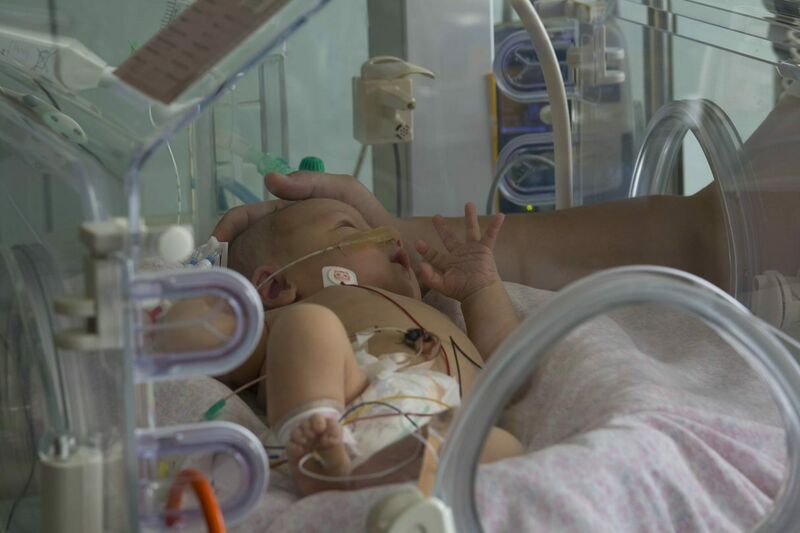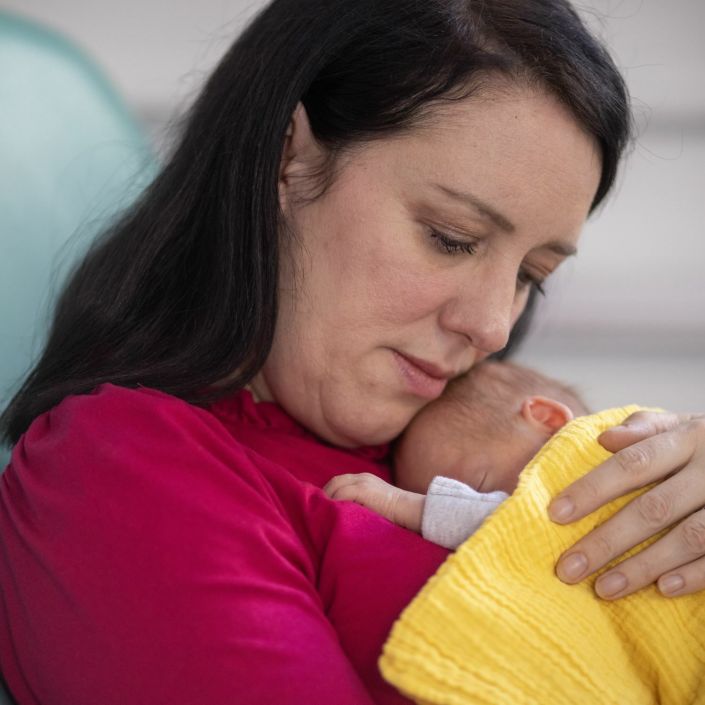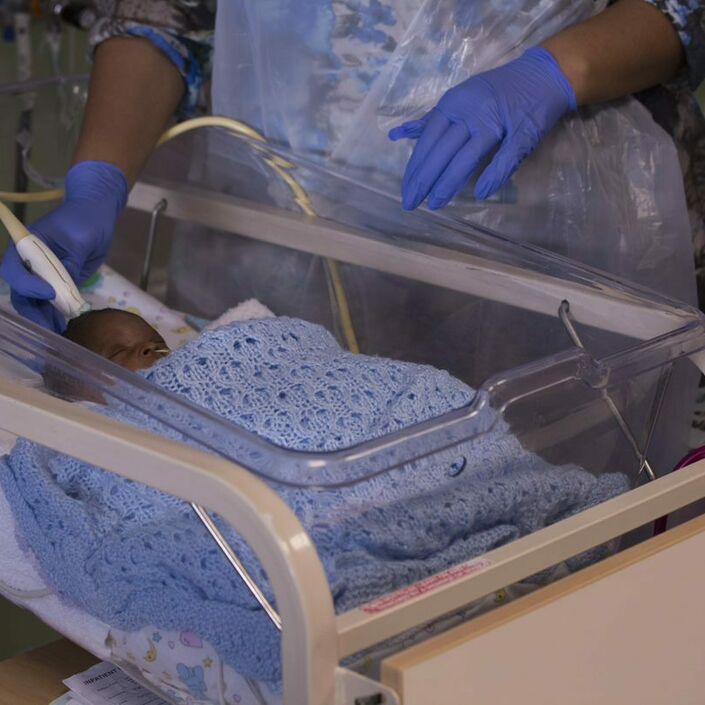Sometimes, a brain haemorrhage can happen during or just after birth in a baby born at full term.
The most common types of brain haemorrhage that can happen in full term babies are called subarachnoid haemorrhage and subdural haemorrhage. Other types of brain haemorrhage, including an intraventricular haemorrhage (IVH), are less common in babies born at term.
It is not always possible to know what causes the brain haemorrhage. It may be due to the natural forces on your baby’s head during vaginal birth. Some factors which may increase the risk include:
- breech delivery, where your baby comes out bottom first
- needing help with forceps or ventouse (suction) to deliver your baby, your baby having a condition which makes them more likely to bleed, such as haemophilia or having low platelets (thrombocytopenia)
Most full-term babies with a brain haemorrhage do not show any signs. If your baby does show signs, these may appear on the second or third day after birth. Signs include:
- being floppy
- pauses in breathing (apnoea)
- being less alert
- slow heart rate
- seizures
What tests might my baby have to check for a brain haemorrhage?
If your baby's healthcare team are concerned about a possible brain haemorrhage in your baby, they may arrange further tests. These might include scans of your baby’s head such as:
- an ultrasound scan
- a CT scan
- an MRI scan
If you want to know more about any of these tests, you can ask a member of your healthcare team to explain.
In most cases, the bleeding stops without treatment. Your baby may need to be cared for on the neonatal unit if they are unwell. Rarely, a surgical operation may be needed to drain the blood to stop it pressing on your baby’s brain.
Are there any short-term or long-term effects?
Most full-term babies recover well after a brain haemorrhage. Whether your baby has long-term problems will depend on how severe the bleeding was and what part of the brain was affected.
Some babies with a brain haemorrhage may develop cerebral palsy, which is a condition that affects movement, posture and co-ordination. Some may have learning, speech and behavioural difficulties in early childhood. Some babies may go on to develop epilepsy, which is a condition that causes seizures.
If you have any questions or concerns about any effects of having a brain haemorrhage, speak to your baby’s healthcare team. You can ask as many times as you like. They are there to help and answer any questions you have.
Having a baby who is unwell with a brain haemorrhage in intensive or special care can be a stressful experience. You may feel out of control of your situation. Feeling this way is very common. How you feel and process what has happened to you might be different to others who face these challenges.
We have some information about how you might be feeling and the different types of support available.
If you are unsure about any part of your baby’s diagnosis, treatment or care, the staff on the unit will help you in any way they can. It is okay to ask again if you need information repeated or made clearer. The team will understand and want to support you.
We have included some links to charities and organisations who can provide more support. If you need someone to talk to, you can also contact us on [email protected] or arrange a video call with one of our volunteers.
- The Birth Trauma Association – Provides support to women who have had a traumatic birth experience.
- The Rainbow Trust – Provides emotional and practical support to families who have a child with a life-threatening or terminal illness.
- Sands - A charity that supports anyone affected by the death of a baby.
- Scope - A charity that supports disabled people and their families through practical information and support, particularly at the time of diagnosis.
- Together for Short Lives – A charity for children with life-threatening and life-limiting conditions.
- Epilepsy Action – Provides advice and support to anyone affected by epilepsy.



